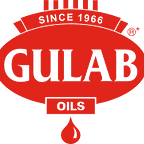Refined Corn Oil: Nutritional Facts and Benefits
Corn oil is a staple in many kitchens around the world, and India is no exception. Known for its versatility and health benefits, refined corn oil has become a popular choice among Indian households. In this article, we’ll explore the nutritional facts and benefits of refined corn oil, with a particular focus on corn oil manufacturers in India. Whether you’re new to using corn oil or looking to learn more about its benefits, this comprehensive guide has got you covered.
Introduction
Corn oil has been a part of the Indian culinary scene for decades. But what exactly makes it so special? Why do so many people prefer refined corn oil over other types of cooking oils? This article will delve into these questions and provide you with a detailed understanding of refined corn oil, its nutritional benefits, and the leading corn oil manufacturers in India.
What is Refined Corn Oil?
Refined corn oil is derived from the germ of corn kernels. The refining process involves removing impurities and free fatty acids to produce a clear, light oil that’s perfect for cooking. This oil is known for its mild taste, high smoke point, and numerous health benefits, making it a popular choice for various cooking methods, from frying to baking.
Nutritional Profile of Refined Corn Oil
Understanding the nutritional profile of refined corn oil can help you make healthier cooking choices. Here are some key components:
- Calories: One tablespoon of refined corn oil contains approximately 120 calories.
- Fats: It is rich in polyunsaturated and monounsaturated fats, which are beneficial for heart health.
- Omega-6 Fatty Acids: Corn oil is a good source of omega-6 fatty acids, essential for brain function and skin health.
- Vitamin E: This oil is high in vitamin E, an antioxidant that protects cells from damage and supports immune function.
Health Benefits of Refined Corn Oil
Refined corn oil offers a range of health benefits that make it a valuable addition to your diet:
- Heart Health: The high levels of polyunsaturated fats in corn oil help reduce bad cholesterol levels, lowering the risk of heart disease.
- Skin Health: The vitamin E content in corn oil promotes skin health by protecting against oxidative damage and maintaining moisture.
- Anti-Inflammatory Properties: Corn oil has been shown to reduce inflammation, which can be beneficial for conditions like arthritis and asthma.
- Immune Support: The antioxidants in corn oil support the immune system, helping to ward off infections and diseases.
How Refined Corn Oil is Made
The process of making refined corn oil involves several key steps:
- Extraction: The oil is extracted from the germ of corn kernels.
- Degumming: This process removes phospholipids and other impurities.
- Neutralization: Free fatty acids are neutralized to improve the oil’s stability and flavor.
- Bleaching: The oil is bleached to remove color pigments.
- Deodorization: Finally, the oil is deodorized to eliminate any unwanted odors and flavors, resulting in a clean, mild-tasting oil.
Refined Corn Oil in Indian Cooking
Refined corn oil’s mild flavor and high smoke point make it ideal for various Indian cooking methods. Whether you’re frying samosas, sautéing vegetables, or baking bread, corn oil provides a light, crispy texture without overpowering the dish’s natural flavors.
Comparing Corn Oil with Other Oils
When it comes to choosing the right cooking oil, it’s essential to understand how corn oil compares to other popular options:
- Corn Oil vs. Olive Oil: Olive oil is rich in monounsaturated fats and antioxidants, but corn oil has a higher smoke point, making it better for high-heat cooking.
- Corn Oil vs. Canola Oil: Both oils are heart-healthy choices, but corn oil contains more polyunsaturated fats, which are beneficial for reducing cholesterol levels.
- Corn Oil vs. Sunflower Oil: Sunflower oil is similar to corn oil in terms of fat content, but corn oil offers a higher level of omega-6 fatty acids.
Tips for Choosing the Best Corn Oil
Selecting the best corn oil can enhance your cooking and health benefits:
- Check the Label: Look for labels that mention “refined corn oil” to ensure you’re getting a high-quality product.
- Consider the Brand: Choose reputable brands known for their quality and safety standards.
- Look for Certifications: Certifications from organizations like FSSAI (Food Safety and Standards Authority of India) indicate that the oil meets safety and quality standards.
Common Myths About Corn Oil
There are several myths about corn oil that need to be debunked:
- Myth 1: Corn Oil is Unhealthy: While it’s high in calories, moderate use of corn oil as part of a balanced diet can be beneficial for health.
- Myth 2: Corn Oil Causes Weight Gain: Like any oil, corn oil should be used in moderation. It can be part of a healthy diet when consumed in appropriate amounts.
- Myth 3: All Corn Oil is the Same: Different refining processes and quality standards can affect the nutritional profile and taste of corn oil.
Environmental Impact of Corn Oil Production
The production of corn oil, like any agricultural product, has environmental impacts. However, many manufacturers are adopting sustainable practices to minimize their ecological footprint. Supporting brands that use eco-friendly methods can help reduce the environmental impact of corn oil production.
Conclusion
Refined corn oil is a versatile and healthful choice for cooking in India. Its nutritional benefits, mild flavor, and high smoke point make it ideal for various culinary applications. By choosing high-quality corn oil from reputable manufacturers, you can enjoy the health benefits and delicious flavors this oil has to offer.
Read more: Healthy Cooking with Indian Corn Oil: Trusted Manufacturer
